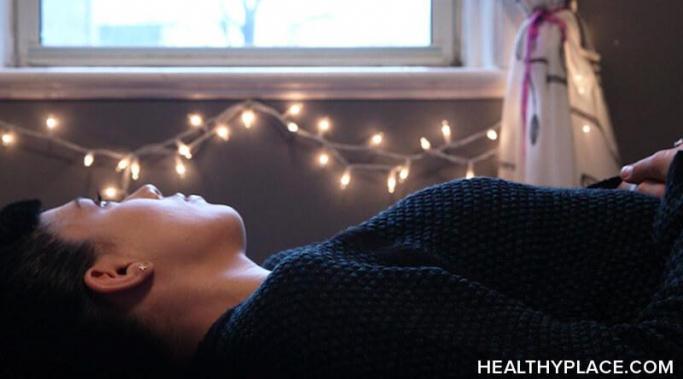When you're living with posttraumatic stress disorder (PTSD), the holiday season can feel like a nightmare. Holidays can be stressful for everyone, but trying to balance the activities of the season when you have PTSD can be very overwhelming.
Childhood Trauma
Posttraumatic stress disorder (PTSD) and grief are very similar at their core. They crash into our lives like a train skidding off the rails, wreck everything that we once knew, and leave us picking up the pieces of our lives in the wreckage. And for some, grief and PTSD occur at the same time. Traumatic events that involve the loss of something or someone special (a car accident, for example) can cause people to develop PTSD and feelings of grief concurrently. For others, trauma and grief occur at different points in their lives but still overlap, forcing them to deal with the emotions of both.
Suicide can be a tough topic to discuss among those suffering from posttraumatic stress disorder (PTSD). Though around 56% of people with PTSD experience suicidal thoughts, ideation, or actions, admitting to having those feelings can feel shameful. (Note: This post contains a trigger warning.)
Posttraumatic stress disorder (PTSD) and insomnia can go hand-in-hand. Insomnia is one of the most common sleep disorders in the world. With around 10-30% of the general population suffering from insomnia, it's normal to know a friend or two that has trouble sleeping at night. Because insomnia is such a common condition, it's often left out of the discussion around posttraumatic stress disorder. But with sleep disturbances proven to increase daily distress and dysfunction in the 80-90% of PTSD patients with insomnia, it's a PTSD symptom that shouldn't be forgotten.
Flashbacks are one of the main symptoms of posttraumatic stress disorder (PTSD), but many people haven't heard of a PTSD body memory flashback. I experience PTSD body memory flashbacks. Here's what they feel like.
Posttraumatic stress disorder (PTSD) nightmares make life tiring. When you live with PTSD nightmares plus anxiety, depression, hypervigilance, and flashbacks (all common occurrences in the day-to-day lives of people with PTSD), it's no wonder around 70-91% of people with PTSD have trouble sleeping at night.
Did you know that using art for posttraumatic stress disorder (PTSD) can help you cope with the symptoms of PTSD?
When I explain my posttraumatic stress disorder (PTSD) startle response to people who don't have much knowledge about the disorder, I like to describe my brain as being "stuck in survival mode." It's the easiest way to describe how I feel to people who don't have PTSD because everyone understands what "survival mode" means.
One of the greatest challenges of complex posttraumatic stress disorder (PTSD) is quieting the inner critic. The critic develops as a result of a neglectful or abusive home in which caregivers do not provide a sense of a safe attachment in the child. Many children in this situation will enact perfectionist mode, believing if they could just be good enough or do things well enough, they can prove their worth and earn parental love. However, over time, as perfectionism fails to create the bond the child so desperately needs, anxiety and sadness build in the child.
Generational silence surrounding complex posttraumatic stress disorder (complex PTSD, often shortened to C-PTSD) and the abuse that can cause it makes growing up in a physically, mentally or emotionally abusive family especially hard. When family members tell you that you need to just shut up and accept it's just how the family is, you can be left feeling hopeless and broken. This attitude is passed on from generation to generation with the expectation that the next generation will also keep quiet. It is the curse of generational silence and it can feed complex PTSD, but it's a curse that you can break.









